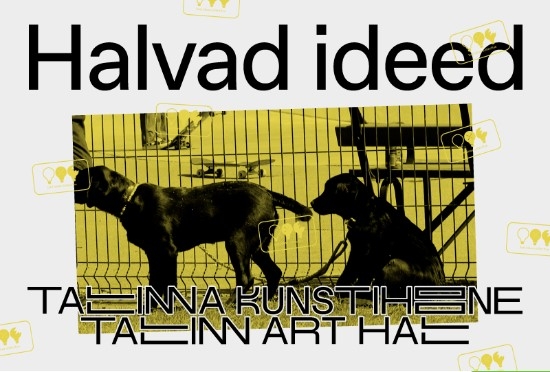The artworks of Bad Ideas are presented without direct authorial attribution, as a means of shifting audience engagement away from questions of production and ownership. The emphasis is on the candid disclosure of the play and processing of ideas – how they are evaluated and either used or abandoned in the creative process. Within this quasi-confessional framework a kind of collective formal freedom might emerge: a speculative post art-world space where the ghosts of discarded possibilities drift and intermingle, cut loose from the moorings of authorship and value. Do these artworks in fact exist in a parallel reality – a “bad” world where the ideas came to fruition through alternative thought processes?
A member of the collective says in the curatorial foreword: “Many members of the collective have highlighted that a distinction needs to be made between bad artwork and bad ideas. Bad ideas do not always take the shape of a bad artwork and vice versa: ‘good’ ideas will not always take the form of a good artwork. Is it ultimately just a question of deciding what is a good or bad idea? Occasionally, ideas which have been considered in the past find new dimensions and it is worth revisiting them, keeping an archive and record of them even if they have been labelled as bad or unresolved. Sometimes perhaps it is just the wrong time or place for them to be developed straight away.”
Launched in December 2020, Bad Ideas Collective is an ongoing online project, giving exposure to art works that haven’t been realised due to creative doubt or other personal reservations. Conceived during the first weeks of the COVID-19 pandemic, under the severe limitations on artistic activity imposed by lockdown, the project was initiated with an invitation to reflect on other ways in which creative production is interrupted, calling on artists to describe a work that was never made for more personal reasons. The contributors include artists and academics based in Latvia, Italy, Mexico and the UK.
Curator Bad Ideas Collective




